Ellen Peirson-Hagger at the New Statesman:
 The development of his body of work is “completely collapsed and over-arching”, Tillmans said. To map out a logical timeline would be reductive. Though there are issues that recur, such as “the politics of representation”, women’s rights and gay rights. Tillmans came out as gay when he was 16, the summer Bronski Beat’s “Smalltown Boy” – which he describes as “the first fully out gay pop song” – was in the charts. “I feel a great sense of gratitude for having been born when and where I was,” he said, though his life has been touched by tragedy: his boyfriend, the painter Jochen Klein, died of Aids-related illnesses in 1997. Tillmans lives with HIV. He does not tend to make work specifically about the disease – 17 Years’ Supply (2014), which depicts a box full of empty pill bottles, is an exception – but his photographs have accrued a political significance in the public sphere. The Cock (Kiss), a 2002 portrait of two men kissing, was the subject of a homophobic attack when it was exhibited in Washington DC in 2006. Ten years later, when 49 people were murdered at Pulse, a gay nightclub in Florida, the image was widely circulated online by way of protest. The photograph was most recently used as the cover for Young Mungo, a gay love story by the Scottish Booker Prize winner Douglas Stuart.
The development of his body of work is “completely collapsed and over-arching”, Tillmans said. To map out a logical timeline would be reductive. Though there are issues that recur, such as “the politics of representation”, women’s rights and gay rights. Tillmans came out as gay when he was 16, the summer Bronski Beat’s “Smalltown Boy” – which he describes as “the first fully out gay pop song” – was in the charts. “I feel a great sense of gratitude for having been born when and where I was,” he said, though his life has been touched by tragedy: his boyfriend, the painter Jochen Klein, died of Aids-related illnesses in 1997. Tillmans lives with HIV. He does not tend to make work specifically about the disease – 17 Years’ Supply (2014), which depicts a box full of empty pill bottles, is an exception – but his photographs have accrued a political significance in the public sphere. The Cock (Kiss), a 2002 portrait of two men kissing, was the subject of a homophobic attack when it was exhibited in Washington DC in 2006. Ten years later, when 49 people were murdered at Pulse, a gay nightclub in Florida, the image was widely circulated online by way of protest. The photograph was most recently used as the cover for Young Mungo, a gay love story by the Scottish Booker Prize winner Douglas Stuart.
more here.

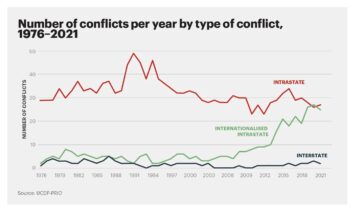 In 2023 the escalation of violence around the world was horrifying. As the
In 2023 the escalation of violence around the world was horrifying. As the 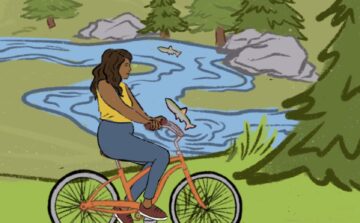 The ozone layer will be
The ozone layer will be  Ali Zaidi, the White House’s thirtysomething national climate adviser, stood before a lectern in a packed conference hall at the NYU School of Law wearing a crisp navy suit, a blue tie, and just enough stubble to look roguish and anti-establishment but not slovenly. It was September 18, day 2 of
Ali Zaidi, the White House’s thirtysomething national climate adviser, stood before a lectern in a packed conference hall at the NYU School of Law wearing a crisp navy suit, a blue tie, and just enough stubble to look roguish and anti-establishment but not slovenly. It was September 18, day 2 of 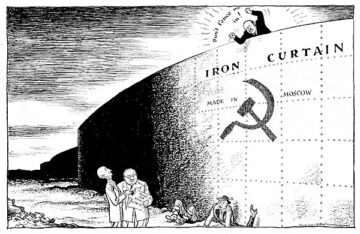 R
R In 1974, Harry Stein and Thomas Moore, young editors who’d worked together at New Times, a glossy biweekly in New York, had an idea: Let’s start a magazine—in Paris. Moore had recently come into a windfall when one of his articles, about an bank robbery in Brooklyn, became the basis for the film Dog Day Afternoon. He moved to Paris, following his then girlfriend; the relationship ended, but he stayed. Stein had previously lived in Paris, writing features for the International Herald Tribune, and also had a European girlfriend at the time. At first, the idea seemed impossible: Maybe we should sell baseball caps instead of starting a magazine, Stein thought. But Moore had a vision. He stole the name from the café outside his living room window, stole the masthead logo from the subway sigh, and their publication was born: The Paris Metro.
In 1974, Harry Stein and Thomas Moore, young editors who’d worked together at New Times, a glossy biweekly in New York, had an idea: Let’s start a magazine—in Paris. Moore had recently come into a windfall when one of his articles, about an bank robbery in Brooklyn, became the basis for the film Dog Day Afternoon. He moved to Paris, following his then girlfriend; the relationship ended, but he stayed. Stein had previously lived in Paris, writing features for the International Herald Tribune, and also had a European girlfriend at the time. At first, the idea seemed impossible: Maybe we should sell baseball caps instead of starting a magazine, Stein thought. But Moore had a vision. He stole the name from the café outside his living room window, stole the masthead logo from the subway sigh, and their publication was born: The Paris Metro. On her 25th birthday in February 1947, Felicia Montealegre sent a
On her 25th birthday in February 1947, Felicia Montealegre sent a  As a health reporter who’s been following nutrition news for decades, I’ve seen a lot of trends that made a splash — and then sank. Remember olestra, the Paleo diet and celery juice? Watch enough food fads come and go, and you realize that the most valuable nutrition guidance is built on decades of research, in which scientists have looked at a question from multiple perspectives and arrived at something like a consensus.
As a health reporter who’s been following nutrition news for decades, I’ve seen a lot of trends that made a splash — and then sank. Remember olestra, the Paleo diet and celery juice? Watch enough food fads come and go, and you realize that the most valuable nutrition guidance is built on decades of research, in which scientists have looked at a question from multiple perspectives and arrived at something like a consensus.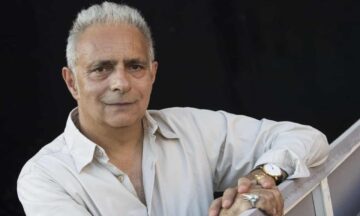 Hanif Kureishi has spoken candidly of how his sense of self and privacy have been “completely eradicated” after a fall on Boxing Day last year left him unable to use his hands, arms or legs.
Hanif Kureishi has spoken candidly of how his sense of self and privacy have been “completely eradicated” after a fall on Boxing Day last year left him unable to use his hands, arms or legs.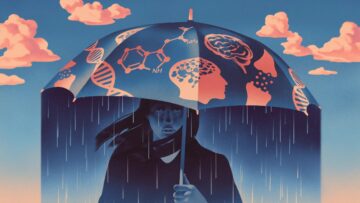 People often think they know what causes chronic depression. Surveys indicate that more than 80% of the public blames a “chemical imbalance” in the brain. That idea is widespread in pop psychology and cited in
People often think they know what causes chronic depression. Surveys indicate that more than 80% of the public blames a “chemical imbalance” in the brain. That idea is widespread in pop psychology and cited in  It is worth remembering the vast majority of what we call free-speech issues have little basis in the First Amendment, which only forbids the abridgment of speech by the government, not private organizations like magazines, cultural centers, or Hollywood production companies. In most states, for instance, it is perfectly legal for employers to fire workers for speech, as a
It is worth remembering the vast majority of what we call free-speech issues have little basis in the First Amendment, which only forbids the abridgment of speech by the government, not private organizations like magazines, cultural centers, or Hollywood production companies. In most states, for instance, it is perfectly legal for employers to fire workers for speech, as a 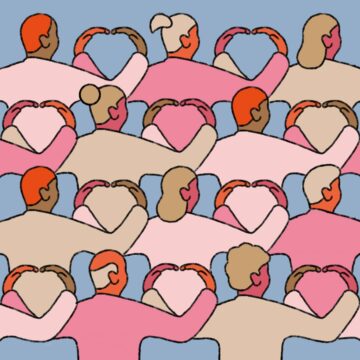 In “
In “ B
B Our conveniently vague or unrealistic
Our conveniently vague or unrealistic 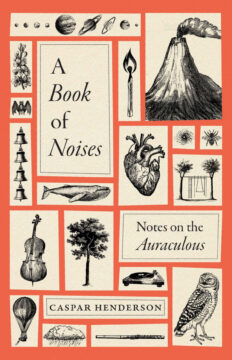 Did you know that sperm whales make sounds using “lips” located near their blowholes — and that those sounds are so loud they could burst the eardrums of a human diver at close range? Or that, near the start of the Covid-19 lockdowns in Britain in 2020, residents on newly quiet streets became aware of “noisy lovemaking” by amorous hedgehogs? Or that, according to legend, churchbells in the English coastal town of Dunwich, which largely disappeared into the sea following storm surges in the 14th century, can still be heard when the tide is just right?
Did you know that sperm whales make sounds using “lips” located near their blowholes — and that those sounds are so loud they could burst the eardrums of a human diver at close range? Or that, near the start of the Covid-19 lockdowns in Britain in 2020, residents on newly quiet streets became aware of “noisy lovemaking” by amorous hedgehogs? Or that, according to legend, churchbells in the English coastal town of Dunwich, which largely disappeared into the sea following storm surges in the 14th century, can still be heard when the tide is just right?